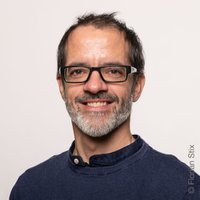Digital Skills for School Pupils
Cross-Border Format: Second SKILLsCamp in Gmünd Promotes Digital Skills and Innovative Solutions
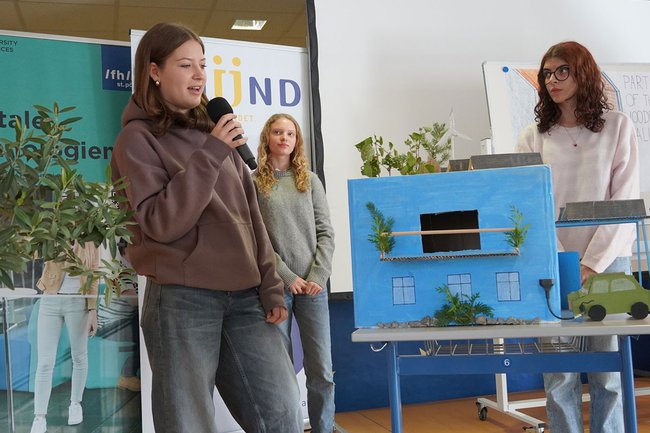
The second SKILLsCamp was recently held at the secondary school Gymnasium Gmünd – and just like last year, it was a great success: This time, 25 pupils participated in the format, among them some from the Czech Republic for the first time. In collaboration with seven regional companies and the St. Pölten UAS, the teenagers developed innovative solutions and ideas for digitalisation.
The idea behind the SKILLsCamp is both simple and innovative: Young people develop innovative solutions and ideas with a focus on digitalisation in collaboration with industry-oriented companies. This year, pupils from the secondary school in Třeboň (Czech Republic) joined in for the first time, which gave the camp an additional international dimension.
Thanks to the scientific supervision of St. Pölten UAS researchers, the pupils had the opportunity to familiarise themselves with innovative methods and modern technologies, and to apply them directly. Moreover, the developed results can serve as the basis for pre-scientific papers, diploma theses, and further cooperation with the participating companies.
“One of our central concerns is to promote entrepreneurial thinking and strengthen the innovative power in the region. With the SKILLsCamp, we enable young people to develop their ideas directly with the help of companies and scientific supervisors”, explains Thomas Moser, Head of the Institute of Creative\Media/Technologies at the St. Pölten UAS.
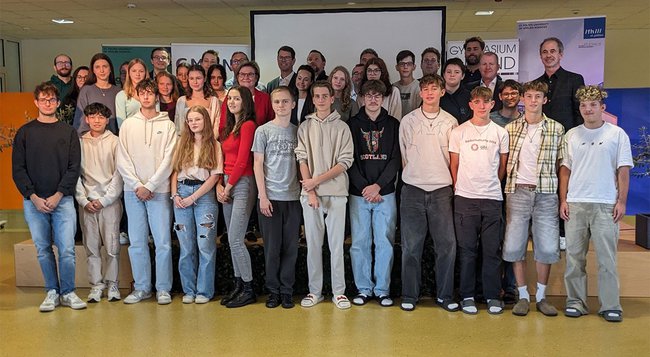
Credit: Ludmila Carvalho
Future Solutions for the Region from the Region
In order to realise the second SKILLsCamp in the district capital, the municipality of Gmünd offered to serve as host once again and allowed the young people to participate free of charge. Mayor Helga Rosenmayer emphasised the fruitful collaboration between the UAS, the school, and the regional business landscape: “I am convinced that we have achieved an excellent second edition of this initiative. The idea of bringing school, science, and businesses together has great potential.”
“Our plan was to facilitate networking between businesses, educational institutions, and the region. It was a very enriching experience for me personally to witness so much enthusiasm on the part of everyone involved”, says Stefan Graf, CEO of the participating construction company Leyrer + Graf.
The second SKILLsCamp in Gmünd gave the school pupils the opportunity to intensively dedicate themselves to future-oriented topics. In four varied workshops, the teenagers tackled the areas of artificial intelligence, sustainability, and sustainable construction.
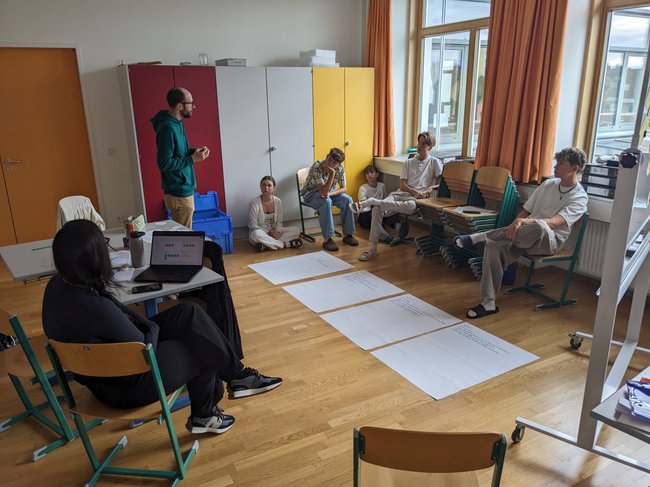
Credit: Ludmila Carvalho
Artificial Intelligence, Sustainable Building, and Waste Robots
Within the framework of their final presentations, the young participants had the chance to introduce their creative ideas to an interested audience from the region: local and national political representatives, their parents and siblings, and representatives of local companies.
The topics ranged from the use of artificial intelligence in production processes to a fascinating live demonstration that illustrated the potentials and limits of chatbots. The audience was particularly impressed with a model of a sustainable house equipped with a photovoltaic system and a wind turbine, and with a short film about a waste robot that presented its varied working day to the visitors.
A special characteristic of this year’s SKILLsCamp was the involvement of school pupils from the Czech Republic. As some presentations were held in English, the young people got to prove their excellent language skills in addition to their technical understanding.
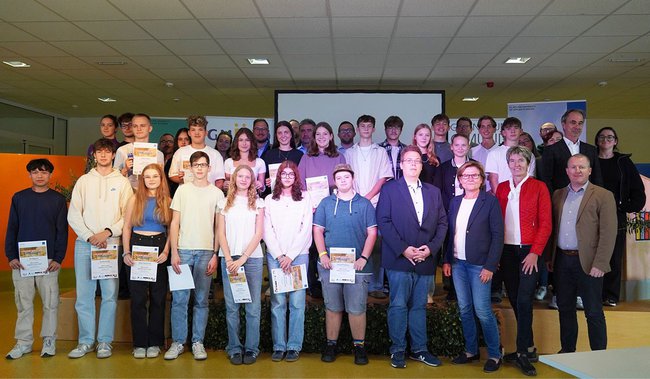
Credit: Magdalena Lueger
Valuable Cooperation with Companies
The cooperation partners from the business world – among them Agrana, Eaton Industries, ELK-Fertighaus, Leyrer + Graf, Pollmann, Stark GmbH, and Test-Fuchs – contributed decisively to the camp’s success. It was their support that gave the teenagers access to valuable resources and allowed them to gain practical experiences.
The St. Pölten UAS was involved in the SKILLsCamp with two of its institutes: the Institute of Creative\Media/Technologies and the Carl Ritter von Ghega Institute for Integrated Mobility Research. Thomas Moser, Head of the Institute of Creative\Media/Technologies, had the main responsibility for the SKILLsCamp in terms of content, while the overall organisational coordination was in the hands of Petra Fischer, Section Head Research Coordination and Innovation in a Regional Environment at the Institute of Creative\Media/Technologies, and Head of the St. Pölten UAS’ Digital Makers Hub.
“The second edition of the SKILLsCamp was a great success throughout and impressively showed how young people can develop future-oriented solutions through creative approaches and interdisciplinary collaboration”, said Fischer.
